Review for The Music Room (Criterion Collection)
Whilst I was familiar with Bengali director Satyajit Ray’s reputation, I had never yet seen one of his films. I had never really thought to seek one out, imagining them to be so culturally different as to take great effort to appreciate them. How wrong I was and in many ways, that’s the great thing about a distributor like ‘Criterion’. You know that they hold the bar very high in terms of the quality of their releases, and ‘The Music Room’ (a.k.a. Jalsaghar) is no exception. It’s an incredible film on so many levels. It’s not only technically brilliant but is sublime in its storytelling brilliance. But as always, I’m ahead of myself.
Based on a well-loved short story, it recounts the tale of the rather imperious Biswambhar Roy (Chhabi Biswas), a respected landowner of the old school, still maintaining a somewhat lavish lifestyle despite his fading wealth, quickly diminishing what little funds he has left on his key indulgencies – namely music. With music and wine he is able to maintain his status within the community as well as drop into an almost trance like reverie where he can lose himself from tha travails of life. He has a music room where he hosts recitals by the very best Bengali musicians for his fellow dignitaries.
As a result of these indulgences, and his refusal to face stark economic facts, he ends up selling his wife’s (Padmadevi) jewelry among other family treasures, a fact that he dismisses with a wave of a drunken hand, saying he will get them back whilst we see the quiet tears of her pain. Despite this, you sense that there is no anger between the two – just frustration from the wife that the man she loves seems lost in music to the cost of all else.
He also spends time teaching his young son and sharing his depthy knowledge of classical Indian music. There is an incredible bond between himself and his son based on music, rather than any practicality.
In stark contrast, an older neighbour’s son Mahim Ganguly (Gangapada Basu) is starting to make good as a money-lender and put on recitals of his own, much to the distaste of Biswambhar who sees this grotesque, self-made man as part of a fast-rising nouveau riche who don’t have class or, as he dramatically puts it, ‘blood’.
But Biswambhar cannot hold back the rising tide of modernization and the film is full of poignant reminders – like the distant rattle of tractor engines and the presence of motor cars.
When his wife leaves for a trip to her Mother’s, Biswambhar’s vanity gets the better of him when he learns of his rival’s intent to host a music event featuring the very finest local musicians. He immediately announces his intent to host such an occasion and sends a message for his wife and son to return. However, it’s storm season and the river isn’t safe, as he learns to his tragic cost.
The scene where the concert is in full flow with the storm visible behind him is harrowing viewing as his attention wanders from the frenetic pace of the music (adding horribly to the rising dark tensions) to a fly drowning in his wine. The tragedy is almost inevitable as his dead son’s body is brought to him.
From here on in, he drops even more deeply into a malaise that sees him sink further into hopeless debt. He shuts the music room, left frozen in time from that fateful evening, and his time is spent sitting in his fading palace with his two loyal man servants. Until one day, having been invited by his rival to a concert at his grand home and refusing, he decides to use the very last few coins on one last concert, employing the finest dancer in the region and the very best musicians. The candles are lit and, for one last tragic time, he drops back to the glories of the past.
Ray is absolutely brilliant at making the tragedy as heartfelt and poignant as possible by making his lead utterly flawed but immensely likable. Indeed, no one in the film seems to dislike him, though many are all too aware of his inevitable and tragic fall from grace.
Every frame of the film is beautifully shot and no reaction or action wasted. The music is incredible too, featuring world class musicians. Ray himself was a huge fan of such music and knew much about it, able to direct Chabi Biswas in ‘appreciating’ the music, even to the point of raising his finger at the end of 16 bars in a raga to help illustrate this. Such attention to detail is what makes ‘The Music Room’ so special. In many respects, it’s almost a masterclass in dramatic film-making. Never rushed and yet somehow economically shot too – all killer, no filler.
As you would expect from Criterion, the transfer is top notch. It just looks breathtakingly good.
The disc also ships with some really good ‘film school in a box’ contextual features which really help with an appreciation of the film, as well as a great deal of insight into Ray’s working methods.
There is a feature length documentary simply entitled ‘Satyajit Ray’ (1984) by Shyam Benegal that goes through his career via interviews, clips from his many films (including ‘The Music Room’) and sequences that show him working on set which are really fun to see.
There are also a couple of new interviews for this set. The first is with Satyajit Ray biographer Andrew Robinson who gives some great background and historical context to the film. The second is perhaps more heartfelt from filmmaker and author Mira Nair (Salaam Bombay!) who recounts various encounters with Ray and what she learned from ‘the master’. His generosity and support for her very different approach to film-making is really moving. A genius and a good egg.
There is also an extract from a curiously awkward and slightly formal 1981 TV round-table discussion with Ray, film critic Michel Ciment, and director Claude Sautet. Sadly, Ray’s English spoken responses are voiced over in French with English subs making it a bit tough going.
The set is rounded off with a booklet featuring a new essay by film critic Philip Kemp alongside a 1963 essay by Ray himself talking about the film’s location, and a 1986 interview with him about the film’s music, which, if you watch the film, is fantastic and a critical part of the film’s success.
‘The Music Room’ is a film that everyone should see at least once and serious fans of film several times over. This Criterion release is really first class and I can’t imagine you’ll pick up a finer edition any time soon. Highly recommended.
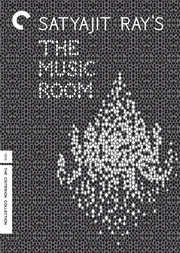
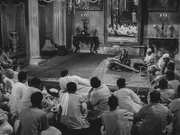
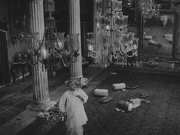
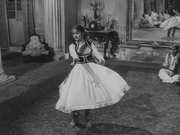


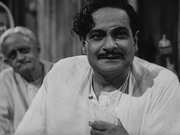













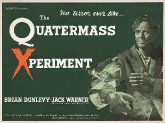
























Your Opinions and Comments
Be the first to post a comment!